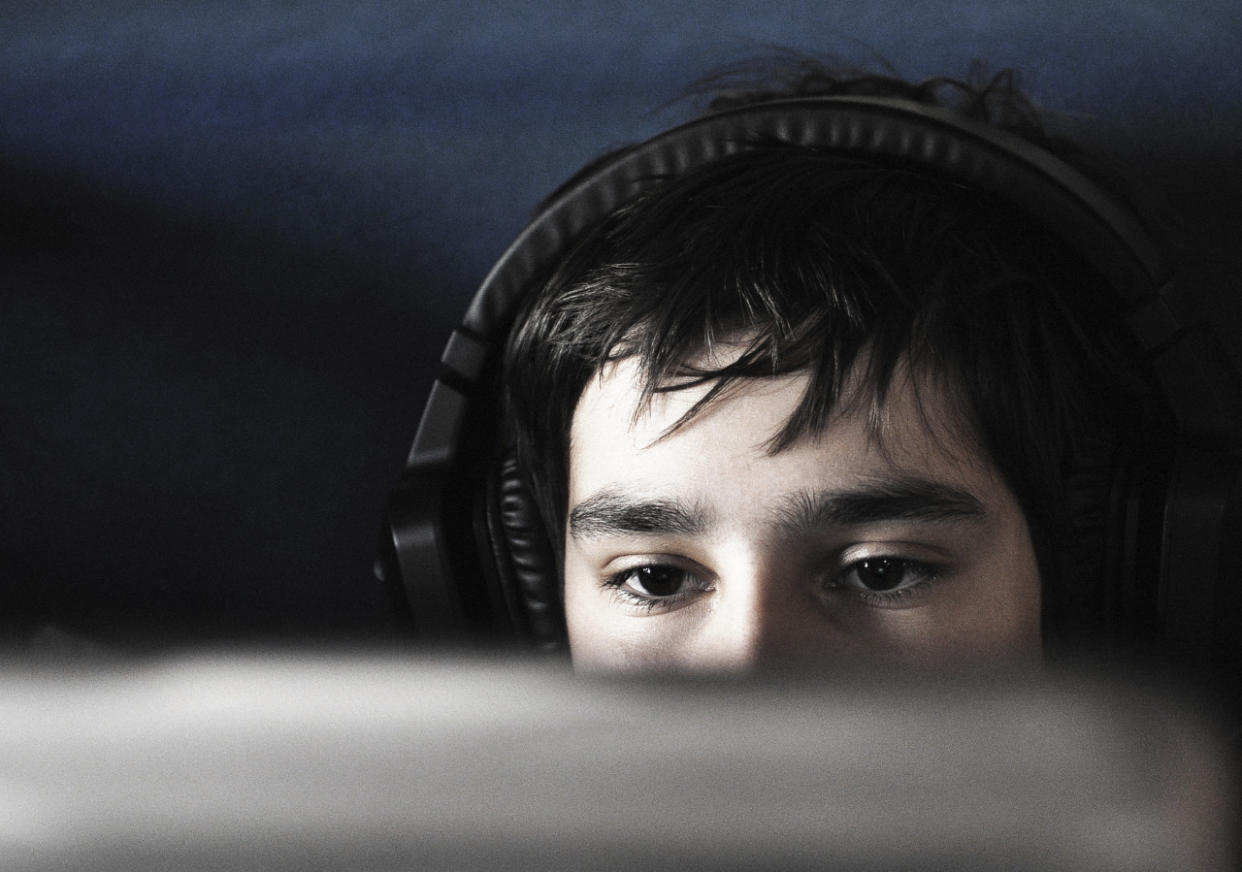Mom Helps Catch a Predator by Posing as Her Son

“Can you talk? I’ll pay you.” Those are the words that a stranger messaged a 17-year-old in Greensburg, Ind. over Facebook recently. When the teenager showed his mom the conversation, she stopped in her tracks. “My first thought was, why would you pay a kid to talk to you?” the mother, who didn’t want to give her name, told CBS4 Indy. Her second instinct was to dig deeper.
She informed police about the messages, and when they got to her home, she posed as her son and exchanged messages with the stranger online. The police then began to guide her conversation, and they soon realized that the man on Facebook, Byron Caudill, 40, was proposing that her son perform a sex act for money. Over a week-long series of messages, the mom-as-son arranged a meeting with Caudill. Eventually, in the parking lot of an area tractor-supply store, an undercover officer linked Caudill to his vehicle’s license plate and police were able to initiate a traffic stop and take him in for questioning.
STORY: Survey: 3 in 4 Toddlers Have Own Mobile Device
“I can’t say enough good about mom,” Greensburg Police Detective Bill Meyerrose told Fox 59. “She was on board with this investigation from the beginning. And whatever we needed as far as the investigation, she was more than willing to help us do.”
The teen’s mother told CBS4 Indy what she’d say to the would-be predator if given the chance: “I’m glad I got you before you hurt my kid, before you hurt anybody else’s kid that I know of.” Her family, Meyerrose noted, is a great example of how open communication is huge when it comes to protecting kids from online dangers.
STORY: Does Technology Make Us Better Parents or Paranoid Stalkers?
“Parents need to take an active role in keeping kids safe,” says Scott Driscoll, a retired police officer and founder of Internet Safety Concepts, who notes that parental monitoring should start as soon as kids connect online. “Families can learn together how various apps and sites work in a fun way — that’s a strong foundation for safety. Then if something odd happens online, a kid is comfortable saying, ‘Hey, mom and dad, this doesn’t seem right.’”
Driscoll acknowledges that kids on smartphones and tablets are an extra challenge. “They could be chatting with strangers right next to you on the couch,” he tells Yahoo Parenting. He advises parents to speak up and ask, “What are you doing?” in a curious way. “If they pull the screen to their chest and hide it, that’s a red flag,” Driscoll says. But if you’ve established a pattern where you learn about the online world together, it’s easier to sit and let them show you how the latest app works, or who they’re talking to.
After spending five years undercover tracking predators online by posting as a 13-year-old girl, Driscoll says he always checked his own kids’ social network followers to be sure he knew who was in their world. “I’d ask my children ‘How do you know this person, and why do you want them in your life?’” he says. “If they could answer those questions, I knew they were connecting mindfully in a fun, good way.”
No one wants to make their kids feel like they’re being watched, and every parent hopes their child would come to them the way this teenage son did if something felt wrong. Larry Magid, CEO and co-founder of ConnectSafely.org, tells Yahoo Parenting that staying close as a family, online and off, is key. “One of the best things you can do to keep your kids safe online is to have dinner together most nights,” he tells Yahoo Parenting. “It doesn’t even matter what you talk about as long as every family member knows that they are being listened to.”
Magid also advises parents to stay calm if kids do come to them with an issue. “Don’t overreact, don’t be quick to blame your kids even if they’re doing something wrong,” he says. “Be open and keep conversations going. Kids need to know that their parents have their back.”
And in the case of something as serious as the Greensburg incident, alerting the police is the way to go. “This mom got it right,” says Magid. “What happened here is relatively rare, but when there is something that appears to be illegal and involves an adult, then it makes sense to contact the police.”
Driscoll agrees. “If you think that any party’s safety is in jeopardy, call the police,” he says. “If someone’s trying to reach your child, others in the community are probably being approached as well, and the police department needs to know that there’s a concern here. That ‘uh-oh’ feeling is enough to make the call.”
(Photo: iStock)
Please follow @YahooParenting on Facebook, Twitter, Instagram, and Pinterest. Have an interesting story to share about your family? Email us at YParenting (at) Yahoo.com.

